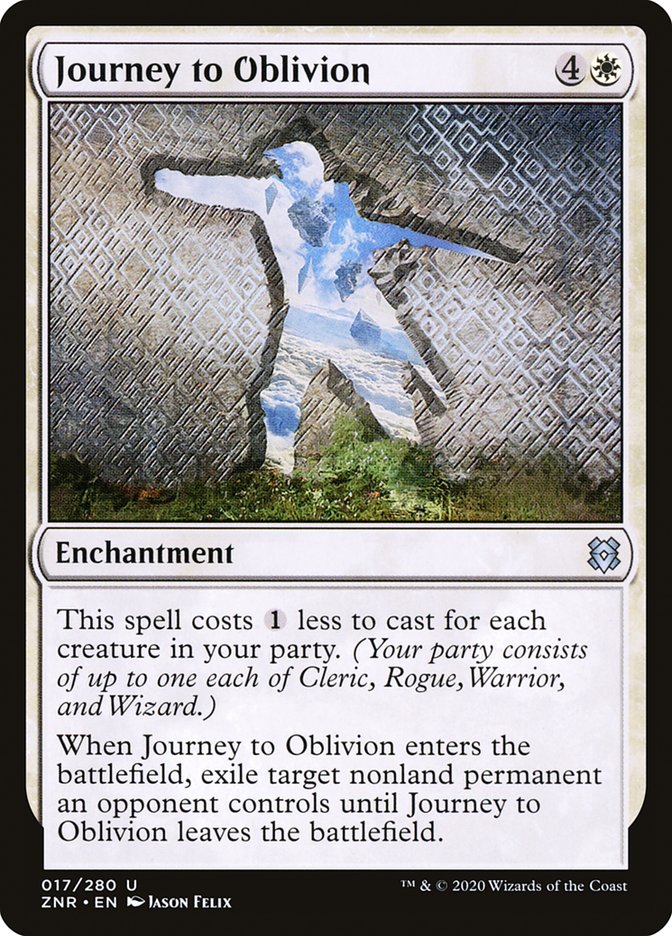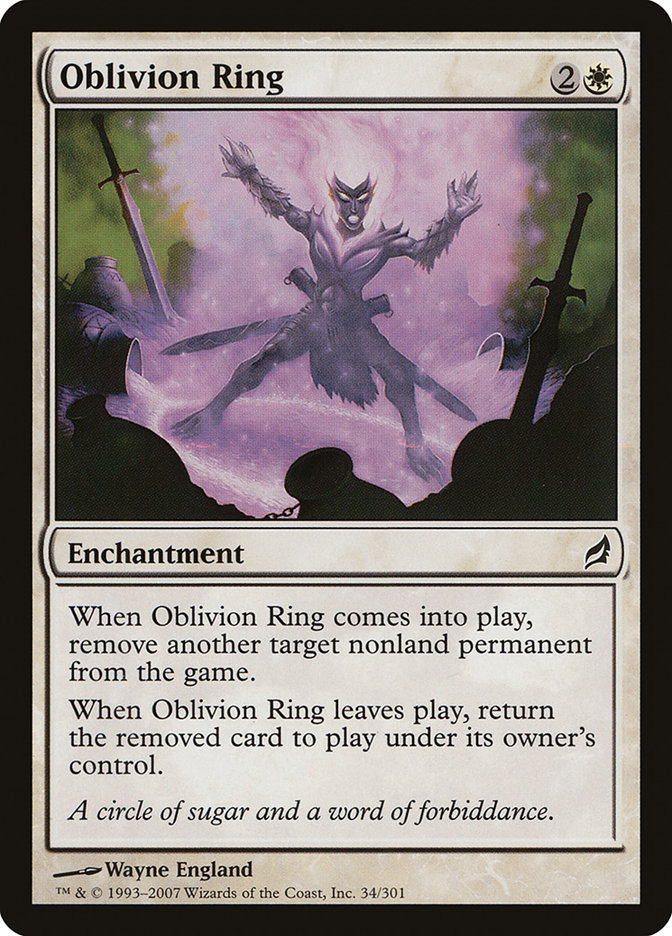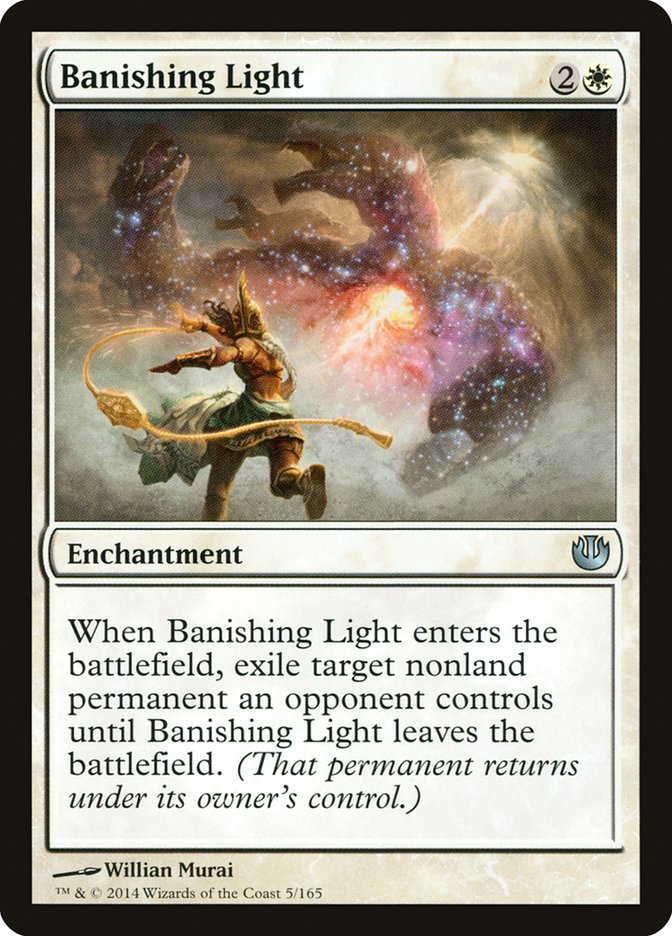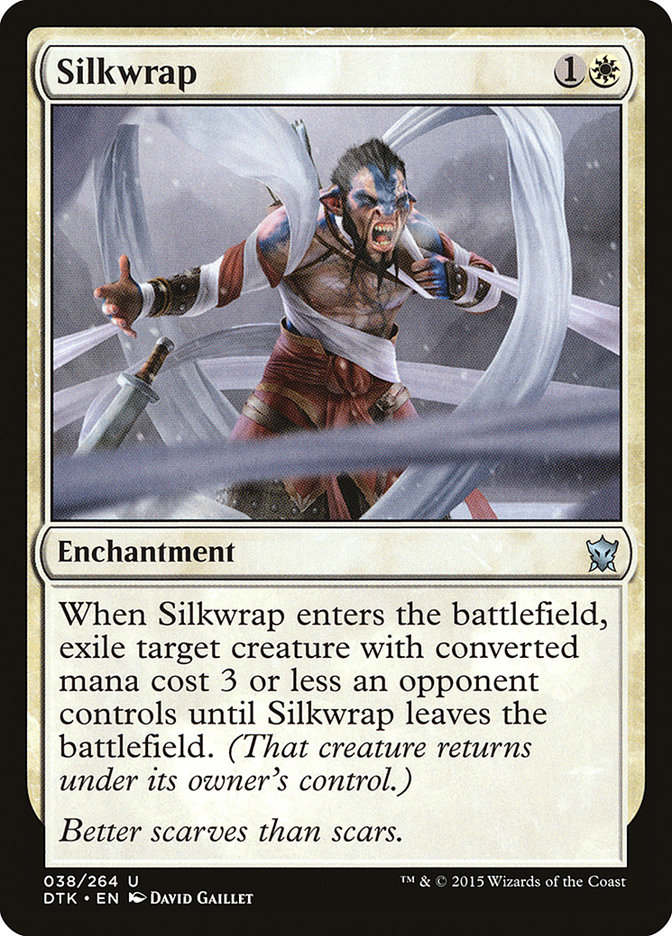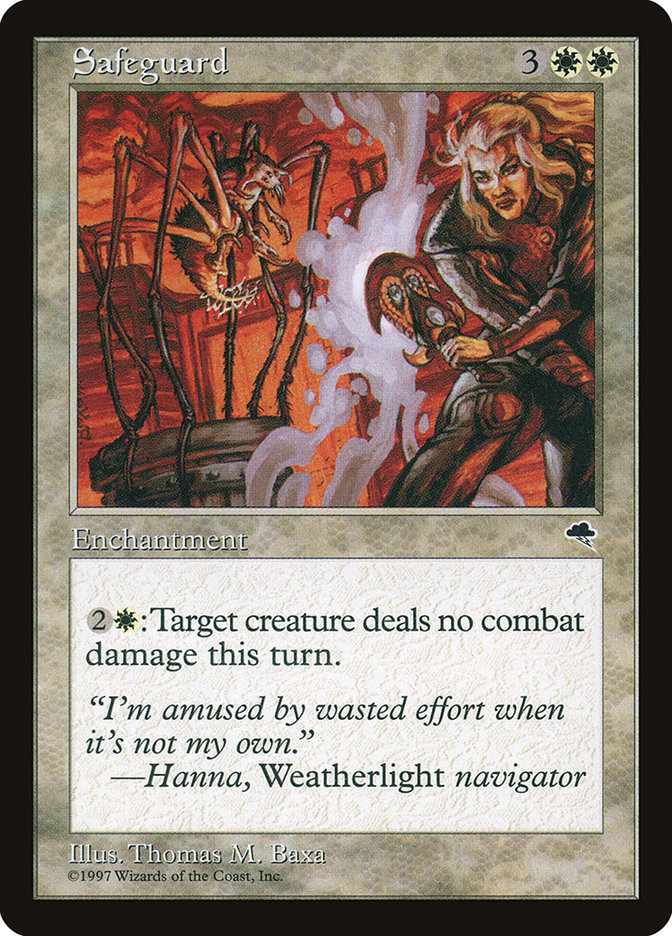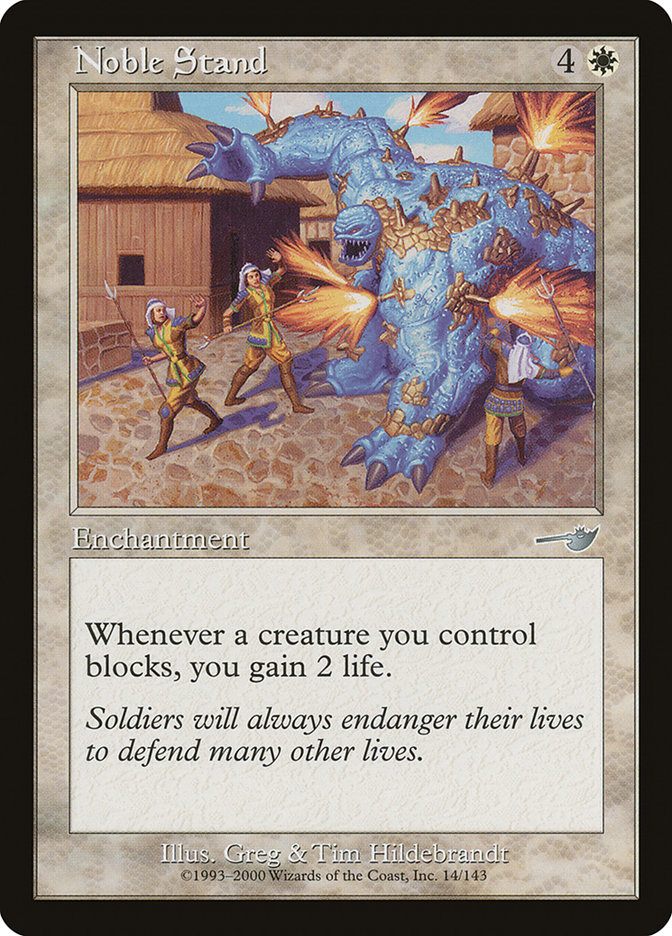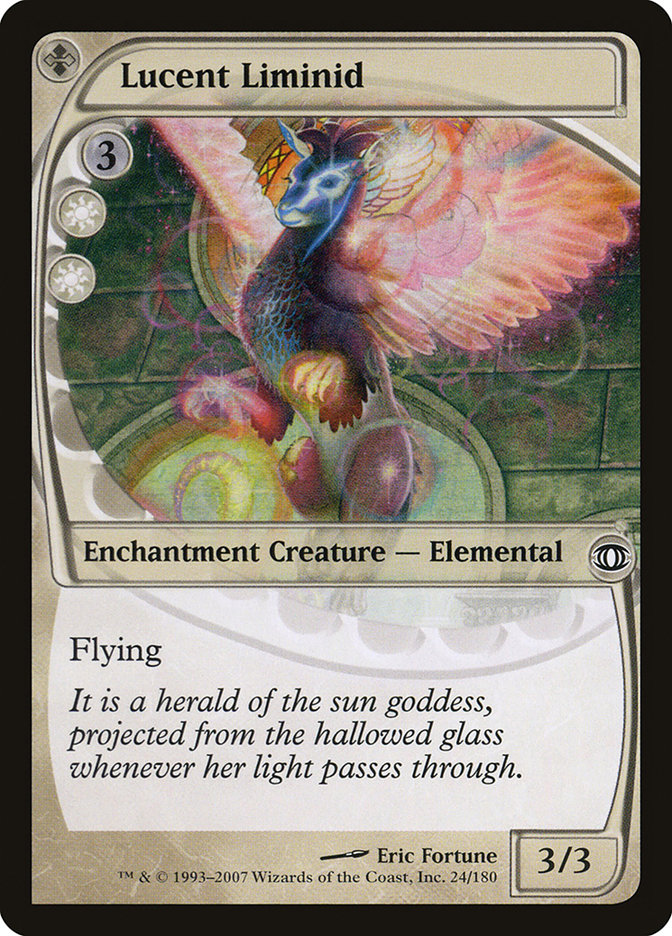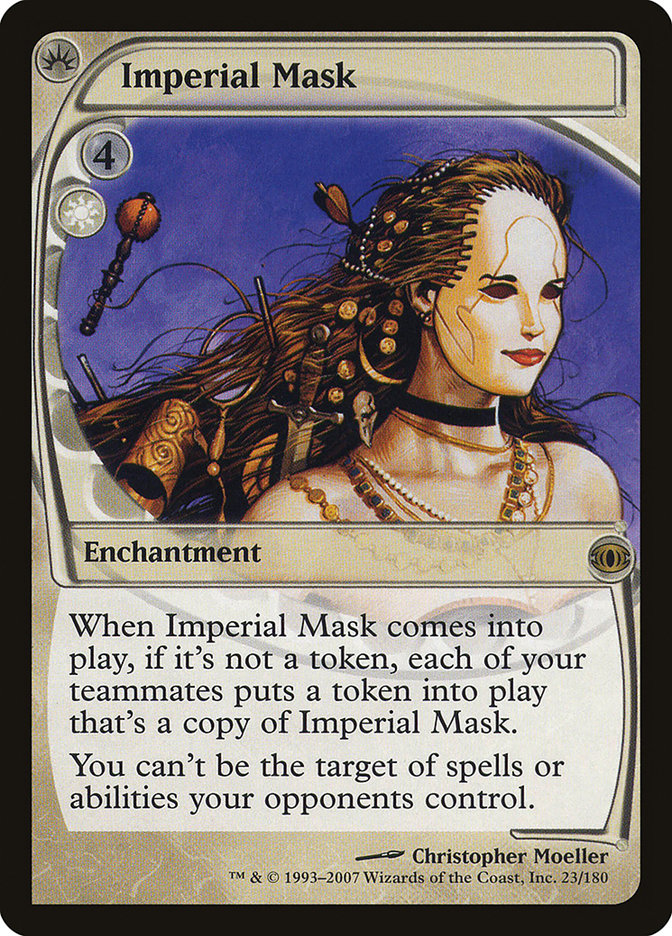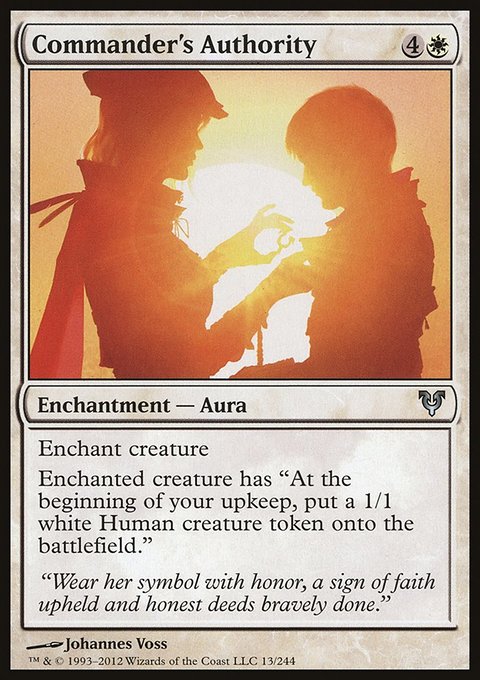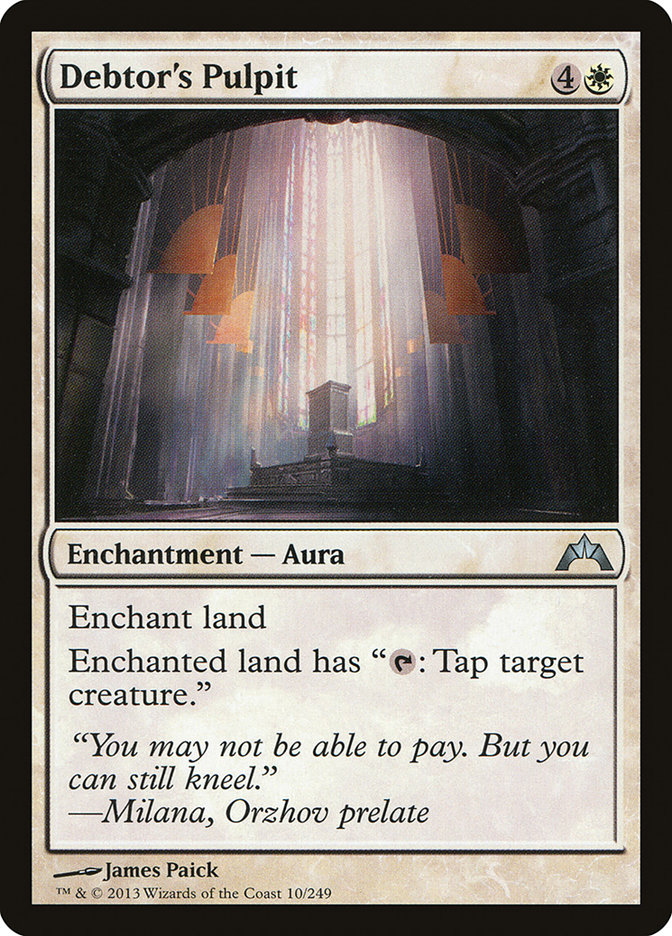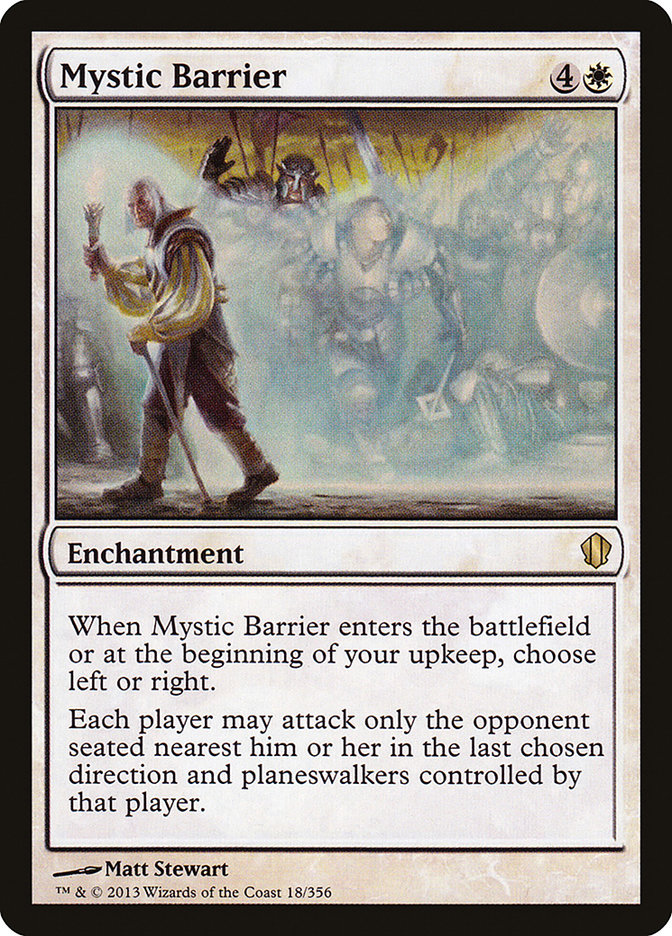Journey to Oblivion MTG Card
| Mana cost | |
| Converted mana cost | 5 |
| Rarity | Uncommon |
| Type | Enchantment |
| Released | 2020-09-25 |
| Set symbol | |
| Set name | Zendikar Rising |
| Set code | ZNR |
| Number | 17 |
| Frame | 2015 |
| Layout | Normal |
| Border | Black |
| Illustred by | Jason Felix |
Text of card
This spell costs less to cast for each creature in your party. (Your party consists of up to one each of Cleric, Rogue, Warrior, and Wizard.) When Journey to Oblivion enters the battlefield, exile target nonland permanent an opponent controls until Journey to Oblivion leaves the battlefield.
Cards like Journey to Oblivion
Journey to Oblivion stands as a significant removal option in Magic: The Gathering, similar to other exile effects like Oblivion Ring. While both enchantments can remove almost any target, Journey to Oblivion’s cost reduction ability tied to party mechanics notably can make it more affordable to cast under right conditions.
Banishing Light is another comparable card yet lacks the potential cost efficiency of Journey to Oblivion. It exiles a nonland permanent for a consistent three mana cost, regardless of the board state. Alternatively, Silkwrap focuses on creatures with mana cost three or less, making it extremely situational.
In terms of strategic depth and versatility, Journey to Oblivion potentially outranks others by adapting to varied game states, resonating well with players who enjoy a flexible removal tool in their arsenal.
Cards similar to Journey to Oblivion by color, type and mana cost
Card Pros
Card Advantage: Journey to Oblivion provides a unique approach to card advantage. By exiling target nonland permanent an opponent controls, you effectively remove that card from the game, cutting down your opponent’s resources while maintaining your card count.
Resource Acceleration: While Journey to Oblivion doesn’t directly provide resource acceleration, its potential lower casting cost due to the number of party members can lead to a more efficient use of mana. This allows players to potentially cast a high-impact spell at a fraction of the cost, saving mana for other plays.
Instant Speed: Although Journey to Oblivion is a sorcery, its relevance in the game remains intact. The ability to exile a key piece on your turn can set your opponent back, paving the way for a strategy that relies on maintaining tempo and board presence.
Card Cons
Discard Requirement: While Journey to Oblivion does not demand discarding as an entry fee, it does have its limitations which may feel as restrictive as a forced discard for some players, especially when considering its conditions for optimal play.
Specific Mana Cost: Its casting cost includes white mana, which restricts it to decks that support such color investments, potentially limiting its versatility across various deck types.
Comparatively High Mana Cost: Journey to Oblivion’s effectiveness is countered by its relatively high mana cost. For five mana, some may argue that similar removal spells could be cast with greater speed or at a lower cost to the player, making it a less desirable option in certain fast-paced play scenarios.
Reasons to Include Journey to Oblivion in Your Collection
Versatility: Journey to Oblivion offers a flexible removal option for decks that can easily reach the threshold of party members. Its ability to deal with any nonland permanent makes it a suitable choice for various situations on the battlefield.
Combo Potential: This card synergizes well with decks that manipulate the number of creatures with different types, enhancing both its cost-reduction mechanism and the effectiveness of other party-related mechanics.
Meta-Relevance: With the shifting MTG landscape, removal spells that can handle an array of threats are incredibly valuable. Journey to Oblivion’s scalability makes it a strategic pick in metas filled with diverse permanent types.
How to Beat
Journey to Oblivion offers a unique removal option within the realm of Magic: The Gathering. This card shines by being versatile, able to exile almost any nonland permanent provided you have enough party members. To get around this, consider strategies that either decrease the number of creatures you control, thus making the card more costly, or use effects that protect your important assets from being targeted in the first place.
Enhancing your deck with cards that grant hexproof or indestructible can be a solid countermeasure against Journey to Oblivion. Options like counterspells, such as Negate or Dovin’s Veto, provide a more proactive solution by stopping the removal spell before it even hits the battlefield. Moreover, playing around the opponent’s mana curve is crucial; applying pressure early can force usage of removal options prematurely, weakening the potential of Journey to Oblivion later in the game.
Ultimately, the key to overcoming this control tool lies in smart deck building and tactical foresight. Maintaining awareness of your opponent’s mana and potential threats will guide you in safeguarding your pivotal permanents, ensuring your journey through the game leads to victory rather than oblivion.
Where to buy
If you're looking to purchase Journey to Oblivion MTG card by a specific set like Zendikar Rising, there are several reliable options to consider. One of the primary sources is your local game store, where you can often find booster packs, individual cards, and preconstructed decks from current and some past sets. They often offer the added benefit of a community where you can trade with other players.
For a broader inventory, particularly of older sets, online marketplaces like TCGPlayer, Card Kingdom and Card Market offer extensive selections and allow you to search for cards from specific sets. Larger e-commerce platforms like eBay and Amazon also have listings from various sellers, which can be a good place to look for sealed product and rare finds.
Additionally, Magic’s official site often has a store locator and retailer lists for finding Wizards of the Coast licensed products. Remember to check for authenticity and the condition of the cards when purchasing, especially from individual sellers on larger marketplaces.
Below is a list of some store websites where you can buy the Journey to Oblivion and other MTG cards:
 BUY NOW
BUY NOW BurnMana is an official partner of TCGPlayer
- eBay
- Card Kingdom
- Card Market
- Star City Games
- CoolStuffInc
- MTG Mint Card
- Hareruya
- Troll and Toad
- ABU Games
- Card Hoarder Magic Online
- MTGO Traders Magic Online
See MTG Products
Legalities
Magic the Gathering formats where Journey to Oblivion has restrictions
| Format | Legality |
|---|---|
| Historicbrawl | Legal |
| Commander | Legal |
| Historic | Legal |
| Legacy | Legal |
| Modern | Legal |
| Oathbreaker | Legal |
| Vintage | Legal |
| Duel | Legal |
| Explorer | Legal |
| Gladiator | Legal |
| Pioneer | Legal |
| Timeless | Legal |
Rules and information
The reference guide for Magic: The Gathering Journey to Oblivion card rulings provides official rulings, any errata issued, as well as a record of all the functional modifications that have occurred.
| Date | Text |
|---|---|
| 2020-09-25 | An ability referring to the number of creatures in your party gets a number from zero to four. Such abilities never ask which creatures are in your party, and you never have to designate specific creatures as being in your party. You can’t choose to exclude creatures from this count to lower the number. |
| 2020-09-25 | Auras attached to the exiled permanent will be put into their owners’ graveyards. Any Equipment will become unattached and remain on the battlefield. Any counters on the exiled permanent will cease to exist. When the card returns to the battlefield, it will be a new object with no connection to the card that was exiled. |
| 2020-09-25 | If Journey to Oblivion leaves the battlefield before its triggered ability resolves, the target permanent won’t be exiled. |
| 2020-09-25 | If a creature has more than one party creature type, and there are multiple ways to count that creature that could result in a different number of creatures in your party, the highest such number is used. For example, if you control a Cleric and a Cleric Wizard, the number of creatures in your party is two. You can’t choose to have it be just one by counting the Cleric Wizard first as a Cleric. |
| 2020-09-25 | If a spell has a cost reduction based on the number of creatures in your party, no player may attempt to change that number after you begin to cast the spell but before you pay the cost. |
| 2020-09-25 | If a token is exiled this way, it will cease to exist and won’t return to the battlefield. |
| 2020-09-25 | Several cards have a cost reduction based on the number of creatures in your party. To determine the total cost of a spell, start with the mana cost or alternative cost you’re paying, add any cost increases, then apply any cost reductions. The converted mana cost of the spell is determined only by its mana cost, no matter what the total cost to cast the spell was. |
| 2020-09-25 | To determine “the number of creatures in your party,” check whether you control a Cleric, whether you control a Rogue, whether you control a Warrior, and whether you control a Wizard. The number is the total number of those checks to which you answered yes. Each creature you control can be counted for only one of those checks. |
